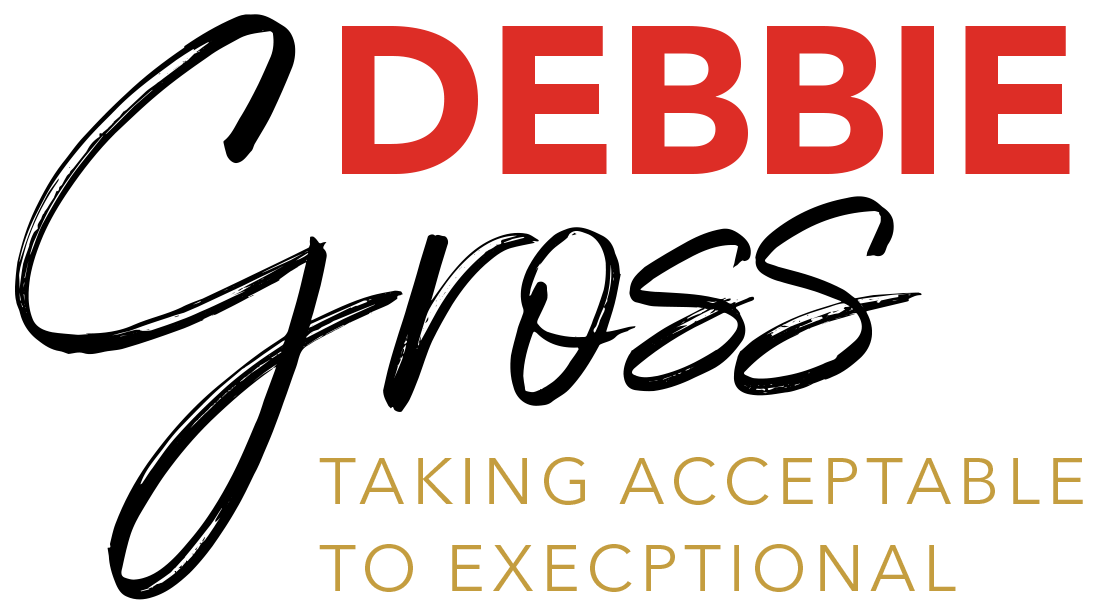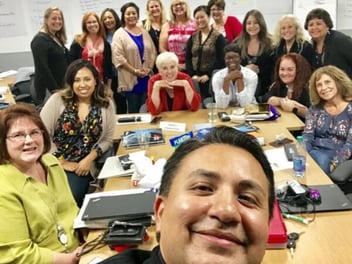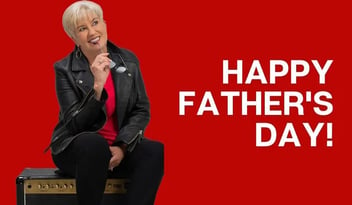We have emotions and we consider ourselves intelligent so we must have emotional intelligence, right?
Not necessarily.
I thought I really knew what it took to be an executive assistant, but in my early career, I was not even “aware” of what Emotional Intelligence (E.I) was. There are in fact four dimensions of emotional intelligence that can either create or hinder one’s success and I discovered these early in my EA career.
When I first started working as an executive assistant for John Chambers in 1991, someone who has fairly high expectations, boy, my emotional intelligence was truly tested! Given he had just started working for Cisco, I had the task of scheduling all the internal employees and local customers that John wanted to meet in his new position as Sr. Vice President of Worldwide Sales. I had my nose buried in the computer working my calendaring magic, trying to fit all the meetings into the week ahead. As in working on a jig-saw puzzle, some pieces just seem to fit while others were alluding me to make them work however, I was almost finished putting a “bow” on a very productive week ahead for John.
I will never forget the day he came to my desk and shared with me that he was going to have to fly to Europe that following week and that I would need to reschedule all the meetings that I had so diligently placed on his calendar.
Are you kidding me!
If you could have seen the look on my face. I was so frustrated and a bit angry that I was going to have to redo a beautiful work of scheduling. Not only did John see it, but others did also too because candidly, I wore my heart (and my feelings on my sleeve). There were also those times, especially when receiving constructive feedback, which John was good at giving, that I would put my defensive shields up and I was surprisingly good at doing the eye roll. Not to mention my many “heavy” sighs. I remember a moment in time when I was trying to use a brand-new copy machine that was on the other side of my cube, and I know it had it out for me. No matter what I tried to do, this copy machine had a mind of its own and would make my life a copy hell. It certainly was not “user error,” I told myself.
On one particular day, the copy machine won the war with my E.I. I started slamming the trays, throwing paper, and using language that only sailors would use. I was completely unaware of how my emotions had gotten the best of me or how others saw me at that moment in time. When one of the other executive assistants came up to me (after she crawled out from under her desk) and asked me “Why didn’t you just go use the other copy machine close by”? I did not know how to answer her.
I lacked “self-awareness” and “self-management,” two of the four major dimensions of emotional intelligence. If I was going to be seen as John’s Chief Executive Assistant, I had to start tuning in and become aware of the messages I was sending through both my words as well as my body language, not always easy at times when under stress, or when unexpected changes occurred.
“Self-awareness” is about recognizing one’s internal states of emotions and then “Self-managing” those emotions to keep them from disrupting the flow of communication and creating instead successful and positive outcomes. I began to keep a journal anytime I noticed my emotions were ramping up, noting what was occurring at the time and then creating a “rational” vs. “emotional” approach to the situation. This allowed me to understand my own hot buttons and then it put me in control of the outcomes.
Any of these could be warning signs that your E.I. is being affected:
- Being overly emotional and not even realizing it
- Distracted by the emotion itself
- Completely losing it when things do not go the way that you had expected
- Complaining about it
- Frustration with others
- Resentment
- Shutting down communications completely
As administrative professionals in an incredibly stressful and demanding role, I encourage us to really work hard on raising our E.I. to increase our overall effectiveness with the leaders we support, build lasting relationships with our peers, family, and friends, and become valued and indispensable to the organizations we support.
Focusing in on displaying and emulating the “healthy” emotions such as joy, gratitude, hope, love, and laughter as often as possible.
Some of the tools I use to create these healthy emotions are:
- Playing upbeat music when working alone in my office – (I love Hawaiian music)
- Started a “Just Had to Laugh” journal noting some of the funny situations I experienced
- Placing inspirational or motivational quotes on my calendar that pops up every month or two – (quite a collection now)
It takes recognition, understanding, and then choosing how we think, feel and act. This is what shapes all our interactions with others and a deeper understanding of ourselves.
How Is your E.I. showing up?
Yours Truly,
Debbie Gross

.jpg?width=50&height=50&name=Simpson_Portraits_Web_3469%20(2).jpg)




Reviews
Write a review